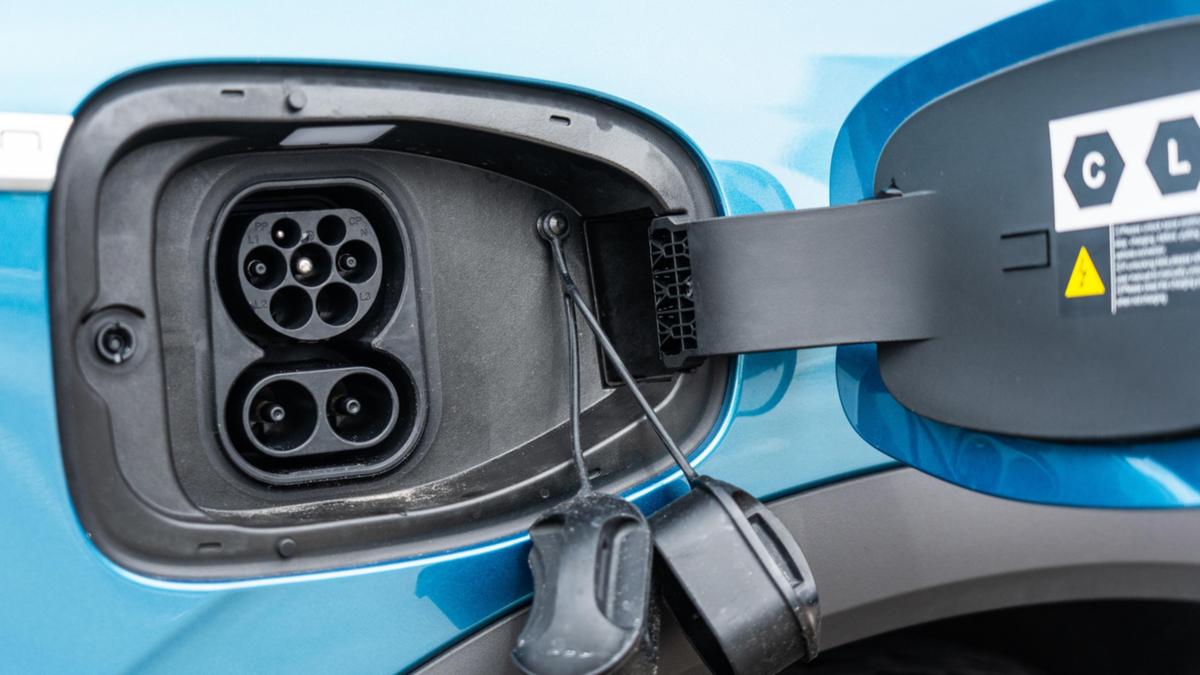BYD 5-Minute EV Charging: Fact Or Fiction? A Comprehensive Review

Table of Contents
Understanding BYD's Battery Technology and its Role in Fast Charging
BYD's ambitious 5-minute EV charging goal is intrinsically linked to its innovative battery technology. The company's success in achieving such rapid charging times hinges on several key advancements.
Blade Battery Technology
At the heart of BYD's fast-charging capabilities lies its Blade Battery technology. This unique battery design boasts several advantages crucial for rapid charging:
- Higher energy density: Blade Batteries pack more energy into a smaller space compared to traditional cylindrical or prismatic cells, allowing for a greater charge in a shorter time.
- Improved safety features: The blade design inherently improves thermal stability, reducing the risk of thermal runaway and enhancing overall battery safety, a critical factor for high-power charging.
- Space-saving design: The flat, blade-like form factor allows for optimized battery pack design, maximizing energy storage within the vehicle's chassis. This efficient packaging contributes to faster charging times and increased range.
Charging Infrastructure Requirements
Achieving 5-minute charging times requires a significant leap in charging infrastructure. This isn't simply a matter of upgrading existing chargers; it demands a completely new level of power delivery:
- High-voltage charging: 5-minute charging necessitates extremely high-voltage charging stations, far exceeding the capabilities of most current public charging networks.
- Significant power demands: These high-power chargers require massive amounts of electricity, posing challenges for grid stability and requiring substantial upgrades to the power distribution infrastructure.
- Infrastructure investment costs: The cost of building and deploying such a network of high-power charging stations is immense, presenting a significant barrier to widespread adoption.
- Geographical limitations: The availability of such charging infrastructure would likely be initially limited to specific regions with the necessary grid capacity and investment.
The Reality of 5-Minute Charging: Current Capabilities and Limitations
While BYD has touted 5-minute charging, the reality is more nuanced. The advertised timeframe likely represents ideal laboratory conditions, not typical real-world scenarios.
Real-World Testing and Results
Independent testing data on BYD's 5-minute charging claim is currently limited. While BYD has showcased demonstrations, the specific conditions under which these tests were conducted often remain unclear. This lack of transparency makes it difficult to objectively assess the true capabilities of the technology under varied real-world conditions. Factors significantly impacting charging speed include:
- Specific test results (if available): Official data is needed to verify claims. Currently, independently verified results supporting consistent 5-minute charging in diverse real-world situations are lacking.
- Factors influencing charging speed: Battery temperature, state of charge (SOC), and ambient temperature all significantly affect charging rates.
- Limitations of the technology: Current battery chemistries and thermal management systems may impose limitations, making consistent 5-minute charging challenging.
Battery Degradation and Long-Term Effects
The extreme power delivery associated with 5-minute charging raises concerns about long-term battery health:
- Potential for accelerated degradation: Repeated high-power charging cycles could accelerate battery degradation, potentially reducing the lifespan and overall performance of the battery pack.
- Impact on battery life cycle: Frequent 5-minute charges might significantly reduce the number of charge cycles the battery can endure before requiring replacement.
- Long-term maintenance costs: Accelerated battery degradation could translate into higher long-term maintenance costs for vehicle owners.
The Future of BYD's 5-Minute Charging Technology
Despite current limitations, the pursuit of 5-minute EV charging represents a significant step towards a more convenient and accessible electric vehicle future.
Technological Advancements and Potential Improvements
Future breakthroughs hold the potential to make 5-minute charging a reality:
- Solid-state batteries: Solid-state batteries offer higher energy density, improved safety, and faster charging capabilities compared to current lithium-ion technologies.
- Advancements in charging technology: Innovations in power electronics and thermal management systems could further enhance charging speeds and mitigate battery degradation.
- Improvements in thermal management: Efficient thermal management systems are crucial for fast charging, preventing excessive heat buildup that can damage the battery.
Market Implications and Wider Adoption
Widespread adoption of 5-minute EV charging could revolutionize the automotive landscape:
- Increased EV adoption rates: Eliminating range anxiety through ultra-fast charging would significantly boost EV adoption.
- Reduced range anxiety: The ability to quickly recharge would alleviate a major concern for prospective EV buyers.
- Impact on charging infrastructure development: The demand for high-power charging would accelerate the development and deployment of advanced charging infrastructure.
Conclusion
Currently, BYD's 5-minute EV charging claim is largely aspirational, not a widespread reality. While the technology shows promise, several significant challenges, particularly regarding charging infrastructure and long-term battery health, need to be addressed. However, ongoing advancements in battery technology and charging infrastructure suggest that ultra-fast charging, potentially approaching BYD's ambitious goal, might become a feasible reality in the future. While widespread 5-minute BYD EV charging is not yet a reality, continued advancements in battery and charging technology offer exciting possibilities. Stay informed about developments in BYD's 5-minute EV charging technology and the future of fast charging by regularly checking back for updates and further analysis. Learn more about the latest breakthroughs in fast EV charging.

Featured Posts
-
 Peak Day Travel Forecast Schiphol Roads And Ferries During Easter Weekend
May 13, 2025
Peak Day Travel Forecast Schiphol Roads And Ferries During Easter Weekend
May 13, 2025 -
 Kilkist Romiv V Ukrayini Statistichni Dani Geografiya Ta Sotsialno Ekonomichni Aspekti
May 13, 2025
Kilkist Romiv V Ukrayini Statistichni Dani Geografiya Ta Sotsialno Ekonomichni Aspekti
May 13, 2025 -
 Eva Longoria Sizzles In A Tiny Leopard Bikini
May 13, 2025
Eva Longoria Sizzles In A Tiny Leopard Bikini
May 13, 2025 -
 The Surprising Success Of Gerard Butlers Netflix Movie
May 13, 2025
The Surprising Success Of Gerard Butlers Netflix Movie
May 13, 2025 -
 Gibraltar To Present At Sidoti Small Cap Conference
May 13, 2025
Gibraltar To Present At Sidoti Small Cap Conference
May 13, 2025
